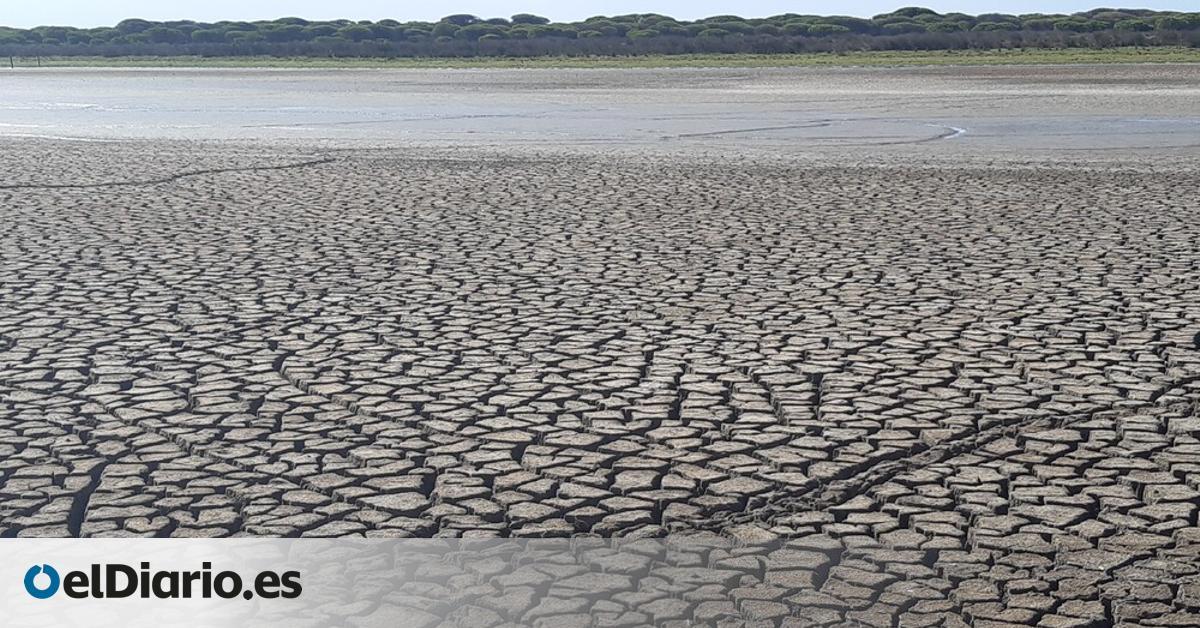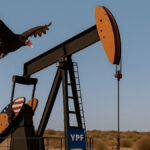
Unesco (United Nations Educational, Scientific and Cultural Organization) has the situation of Doñana in its spotlight, and considers that the law presented by the PP and Vox to pardon irrigation in its surroundings “endangers ” the recognition of the enclave as a World Heritage Site. This is stated in a statement, in which it also announces that the next session of the World Heritage Committee (to be held in September in Saudi Arabia) “will examine the state of conservation of the site.”
Andalusia revealed to Brussels a year ago its plan to double the transfer of water to expand irrigation along with Doñana
Further
The international organization points out that it is “concerned” by the legislative changes that are announced at the regional level to modify the Special Plan for the management of irrigation to the north of the Doñana forest crown, better known as the Strawberry Plan, since these modifications “could endangering the very reasons for recognition” of the enclave as a World Heritage Site, a distinction granted by Unesco itself. In 1980, likewise, it also declared Doñana a Biosphere Reserve.
Thus, the international prestige of Doñana will be settled by the UNESCO World Heritage Committee, the governing body of the World Heritage Convention of which 21 of its 195 member states are part. At the meeting to be held in September in Riyadh (the capital of Saudi Arabia), this committee “will decide on the necessary measures” after analyzing the report on the park presented by the central government and the joint analysis that Unesco itself will carry out. and the International Union for Conservation of Nature (IUCN).
These measures, UNESCO points out, “include a wide range of options”, such as a new monitoring mission on the ground and, “as a last resort”, the possibility of inscribing the site on the List of World Heritage in Danger. This extreme will be reached if the World Heritage Committee considers that the essential characteristics of the site are threatened by determined, specific and immediate dangers.
A law “contrary” to what UNESCO claims
Of course, the precedents do not exactly invite optimism, since the statement recalls that in recent years this World Heritage Committee “has periodically warned about the overexploitation of the aquifer and its possible impacts on the site.” In this sense, it stresses that the increasing drying up of the water masses in the area directly affects the populations of aquatic birds and is aggravated by the recent exceptional drought, “which puts the exceptional biodiversity of the Doñana National Park at serious risk.”
In this context, UNESCO recalls that a field mission was already carried out in Doñana in January 2021, carried out by experts from this same organization, the International Union for Conservation of Nature and the Ramsar Convention on Wetlands. . After it, the recommendation was clear: Spain should continue with the “urgent implementation” of the Strawberry Plan “in its current form”, hence the law advocated by PP and Vox -which modifies various aspects of this plan- “are contrary to the requests” of the World Heritage Committee.
The legislative initiative that has put Unesco on alert was registered by PP and Vox in the Andalusian Parliament, and has had from the outset a furious opposition from the central government, the scientific community, international organizations and environmental entities, in addition to having received the disapproval of the European Commission. At the beginning of May, and given the imminence of the start of the electoral campaign, the PP decided to slow down the processing of the law, which will resume next week. The proposal pursues the regularization of an amount without specifying irrigation (the Andalusian Government has advanced that it will be about 750 hectares) that right now illegally capture water from the aquifer that feeds Doñana, all this when the National Park is going through one of its worst historical moments due to the combination of a drought that has lasted for more than a decade and the increase in temperatures. In this situation, a recent report from the Geological and Mining Institute warns that Doñana can only be saved if the water extracted for irrigation is reduced by half.
Source: www.eldiario.es

